In an era where supplements flood the market promising quick health fixes, it’s easy to overlook the time-tested benefits of traditional fermented foods. These culinary wonders have been savored for centuries, offering unparalleled flavors and health benefits. Fermented foods are rich in probiotics, aiding digestion and boosting the immune system naturally. Let’s embark on a flavorful journey exploring these 15 traditional fermented foods that stand as nutritional powerhouses.
Kimchi
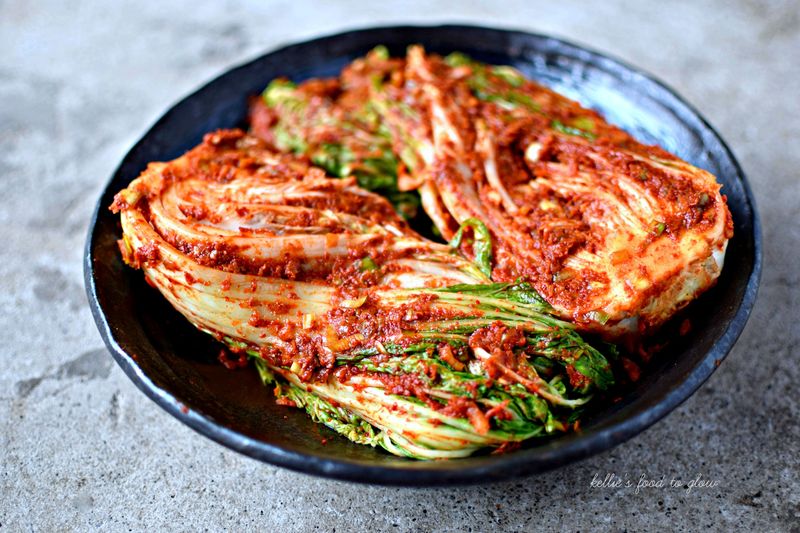
Kimchi, a staple in Korean cuisine, is a spicy fermented dish made from napa cabbage and radishes. Its fiery red color and tangy taste are unmistakable. Packed with probiotics, kimchi aids digestion and supports gut health. It’s not just a side dish; Koreans incorporate it into stews, pancakes, and even fried rice. The fermentation process enhances its nutritional value, making it rich in vitamins A, B, and C. Historically, kimchi was buried underground in jars to ferment during the winter months, a testament to its enduring cultural significance.
Sauerkraut
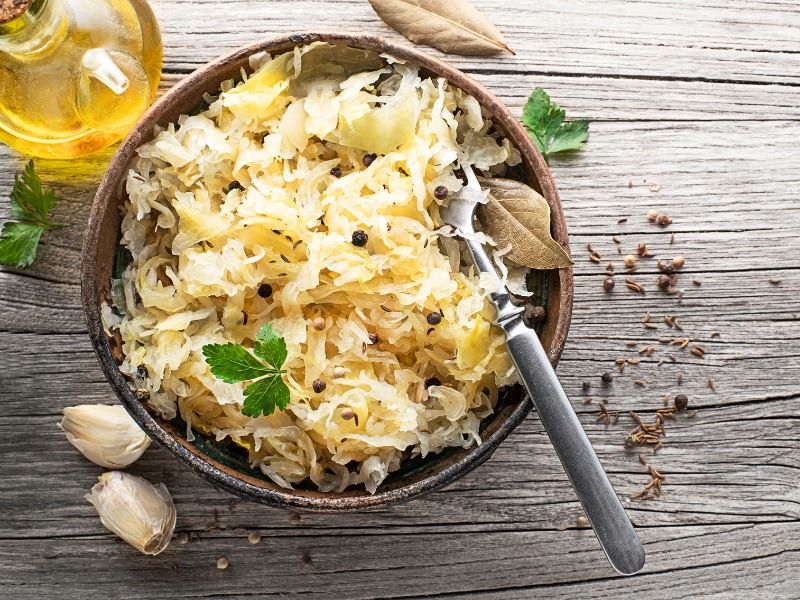
Sauerkraut, with its roots in Germany, is essentially fermented cabbage. Its crisp texture and tangy flavor make it a delightful condiment. Rich in fiber, vitamins C and K, and iron, sauerkraut is a nutritional powerhouse. Traditionally, it was used to prevent scurvy during long sea voyages. The fermentation process not only preserves the cabbage but also enhances its flavor profile. Whether you’re topping a hot dog or serving it as a side, sauerkraut offers a burst of taste and health benefits in every bite.
Miso
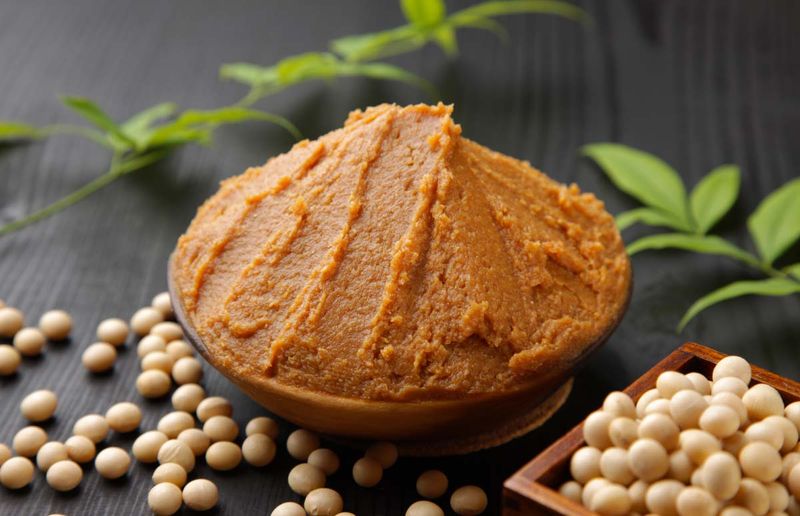
Miso, a quintessential element of Japanese cooking, is a fermented paste made from soybeans, rice, or barley. Its savory, umami flavor elevates dishes like soups and marinades. Miso is rich in essential minerals and a good source of various B vitamins, vitamins E, K, and folic acid. It has been a staple in Japanese diets for centuries, believed to boost the immune system. Each region in Japan has its unique miso flavor profile, reflecting local tastes and traditions. A bowl of miso soup is comfort in a cup.
Tempeh
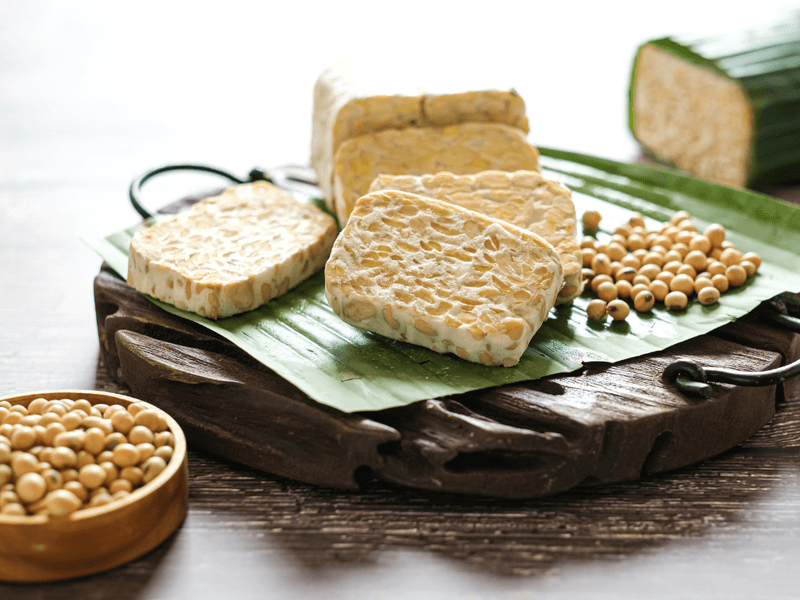
Tempeh, originating from Indonesia, is a fermented soybean product that boasts a firm texture and nutty flavor. Unlike tofu, tempeh retains the whole soybean, providing a higher protein content. Packed with probiotics, fiber, and vitamins, it’s a favorite among vegetarians and vegans. Tempeh’s versatility is unmatched, fitting seamlessly into stir-fries, sandwiches, and salads. Its fermentation process involves a unique mold that binds the soybeans together, creating its distinctive cake-like form. A staple in Indonesian cuisine, tempeh is both nourishing and delicious.
Natto
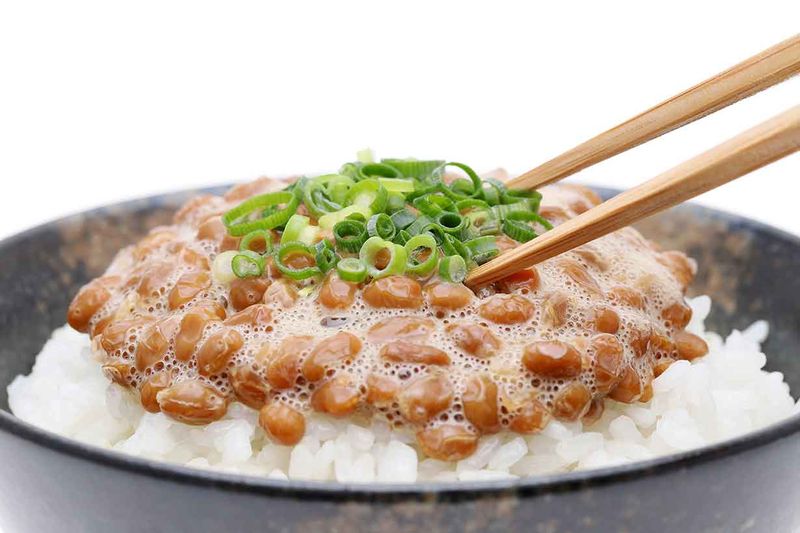
Natto, a traditional Japanese dish, is made from fermented soybeans. Known for its sticky texture and strong aroma, natto is an acquired taste for many. However, its health benefits are undeniable. Rich in protein, vitamin K2, and nattokinase, it’s celebrated for supporting cardiovascular health. Natto has been a part of Japanese breakfast tables for centuries, often served with rice and soy sauce. Its unique fermentation process involves a specific bacterium that gives it its characteristic slimy consistency. Embrace natto for a nutrient-packed start to your day.
Kefir
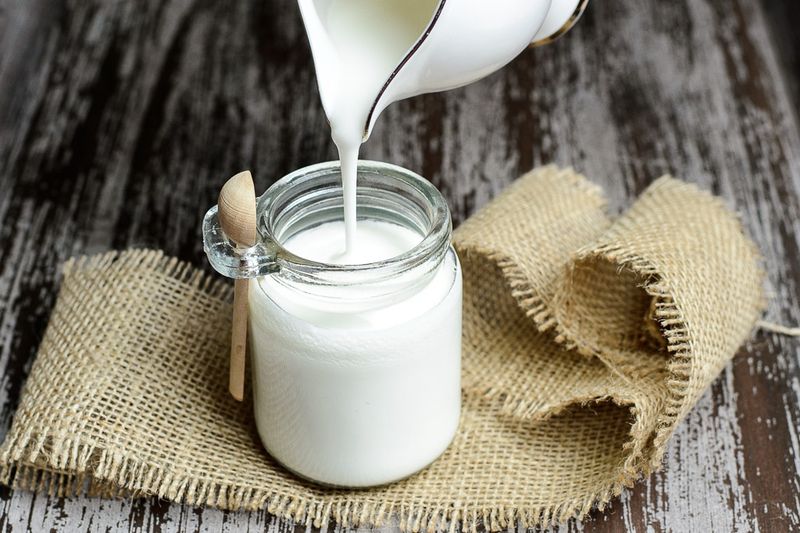
Kefir, a tangy fermented dairy drink, originates from the Caucasus Mountains. Its creamy texture and effervescent taste make it a refreshing beverage. Packed with probiotics, calcium, and proteins, kefir supports digestive health and strengthens bones. Traditionally made by fermenting cow’s or goat’s milk with kefir grains, this drink has been consumed for centuries for its health benefits. Kefir is versatile, enjoyed on its own, blended into smoothies, or even used in salad dressings. A sip of kefir is a journey to the heart of ancient fermentation practices.
Kombucha
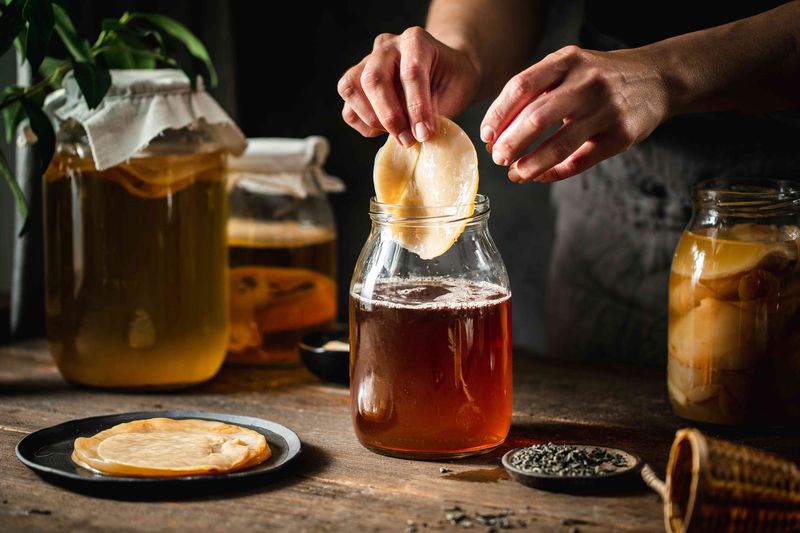
Kombucha, a fermented tea, has gained popularity worldwide for its refreshing taste and health benefits. Known for its effervescence and tangy flavor, it’s rich in probiotics, enzymes, and organic acids. Kombucha is made by fermenting sweetened tea with a symbiotic culture of bacteria and yeast, known as SCOBY. This centuries-old drink is believed to aid digestion and boost energy levels. Its origins are traced back to ancient China, where it was referred to as the ‘Tea of Immortality’. With each sip, kombucha offers a fizzy delight.
Yogurt

Yogurt, a staple in many cultures, is a creamy, fermented dairy product. Its smooth texture and mildly tangy flavor make it a delightful treat. Rich in probiotics, calcium, and protein, yogurt supports digestive health and boosts the immune system. Originating from the Middle East and Central Asia, yogurt has been consumed for thousands of years. It’s versatile, enjoyed on its own, with fruits, or as a base for smoothies and sauces. Each spoonful of yogurt is a testament to the traditional art of fermentation, offering nourishment and delight.
Lassi
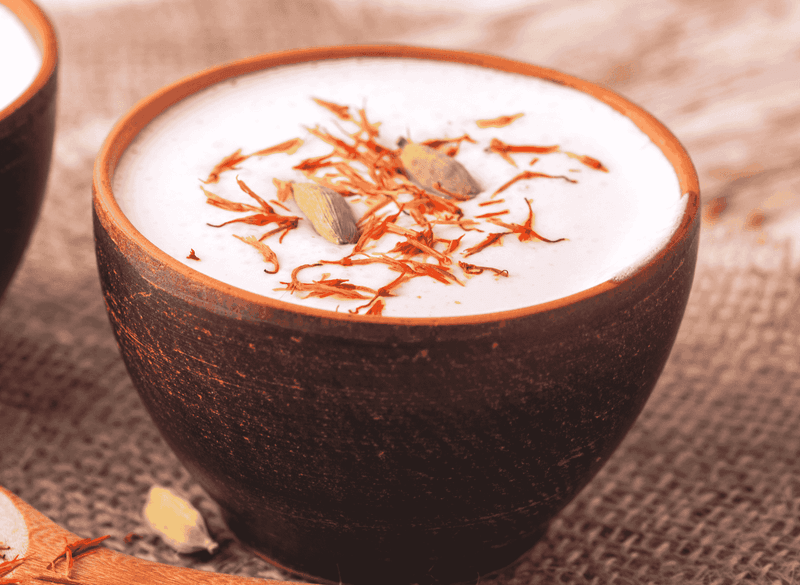
Lassi, a popular Indian drink, combines yogurt, water, and spices or fruit. Its creamy texture and refreshing taste make it a favorite, especially in hot climates. Lassi is rich in probiotics, promoting digestive health. Traditionally, it’s enjoyed sweet or salty, often flavored with mango or rosewater. Originating from the Punjab region, this drink has been a part of Indian culture for centuries. Whether sipped on a hot afternoon or served alongside spicy dishes, lassi offers a cooling respite with every glass, embodying the essence of Indian hospitality.
Kvass
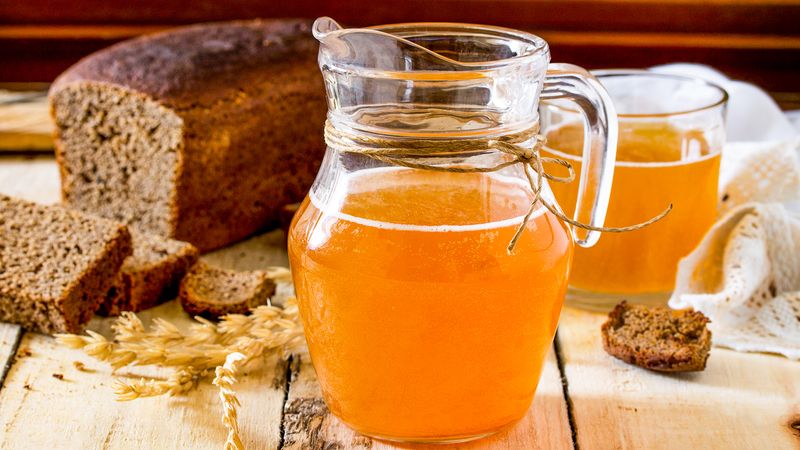
Kvass, a traditional Slavic drink, is made from fermenting rye bread. Its slightly sour and refreshing taste is beloved in Russia and Eastern Europe. Kvass is often flavored with fruits or herbs, like mint or berries. With low alcohol content, it’s a popular non-alcoholic beverage. Kvass is rich in probiotics and B vitamins, supporting gut health. Historically, it was a common household beverage, brewed by families for centuries. A sip of kvass is a journey through Eastern European culinary traditions, offering a taste of history and culture.
Pickles
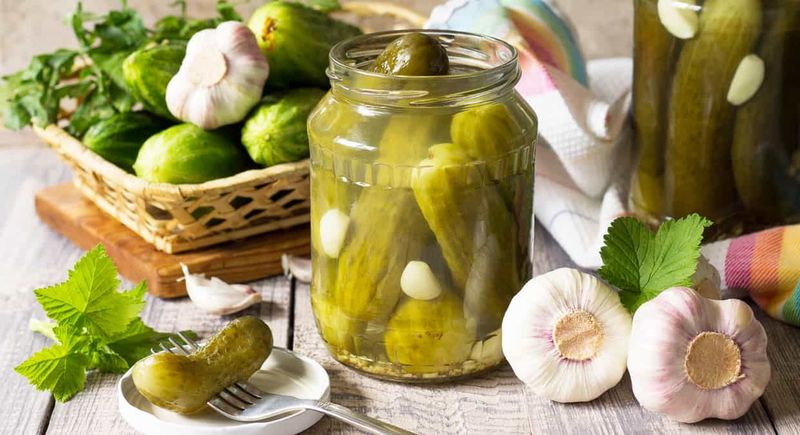
Pickles, often synonymous with cucumbers, are enjoyed worldwide for their tangy, crunchy goodness. Fermented pickles, unlike vinegar-cured ones, are made through lacto-fermentation. This process not only enhances their flavor but also boosts probiotic content. Pickles are rich in vitamins K and A, supporting bone health and vision. From New York deli sandwiches to Indian achar, pickles are a culinary staple. Their origins date back to ancient Mesopotamia, showcasing their enduring popularity. Each crunchy bite of a pickle is a refreshing burst of flavor and tradition.
Fermented Tofu

Fermented tofu, often referred to as ‘stinky tofu’, is a beloved delicacy in China and Taiwan. Despite its pungent aroma, its creamy texture and umami-rich flavor make it irresistible to many. Fermented tofu is packed with protein and probiotics, supporting gut health. It’s often enjoyed as a condiment or snack, paired with rice or vegetables. The fermentation process involves a brining liquid, which gives it its characteristic smell. While it may be an acquired taste, fermented tofu offers a unique culinary experience, deeply rooted in Asian food culture.
Idli
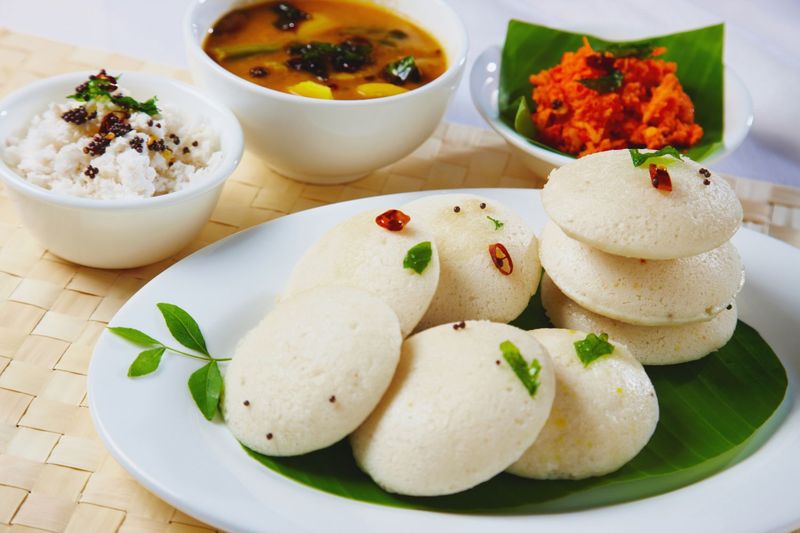
Idli, a popular South Indian breakfast, is a fluffy, steamed cake made from fermented rice and lentils. Its soft texture and mild flavor make it a comforting meal. Rich in carbohydrates and proteins, idli is a balanced start to the day. The fermentation process enhances its nutritional value, making it easy to digest. It’s traditionally served with coconut chutney and sambar, adding layers of flavor. Originating from South India, idli has been a staple for centuries, embodying the simplicity and richness of Indian cuisine.
Dosai
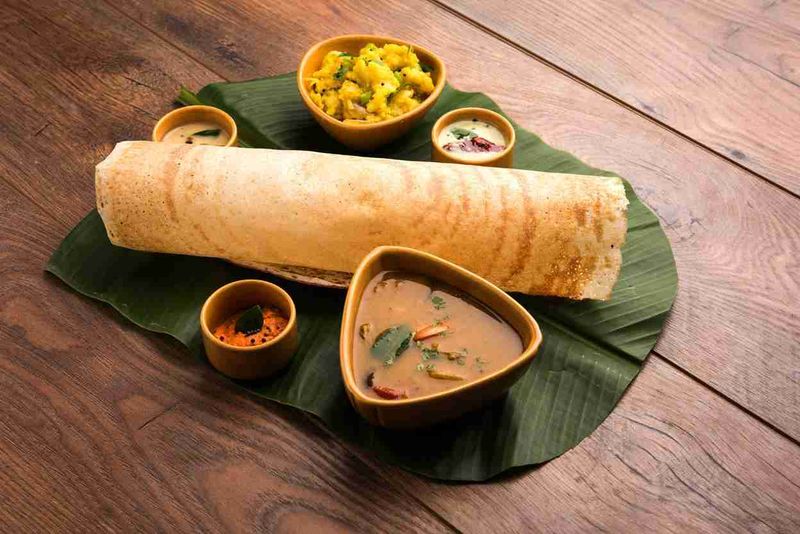
Dosai, a South Indian staple, is a crispy, savory pancake made from fermented rice and lentil batter. Its golden-brown hue and delicate crunch are irresistible. Rich in carbohydrates and proteins, dosai is a nutritious meal. The fermentation process not only enhances its flavor but also aids digestion. Traditionally enjoyed with chutneys and sambar, dosai is a versatile dish, often filled with spiced potatoes to make ‘masala dosai’. An integral part of South Indian cuisine, dosai is a culinary delight that balances taste and nutrition.
Sourdough Bread
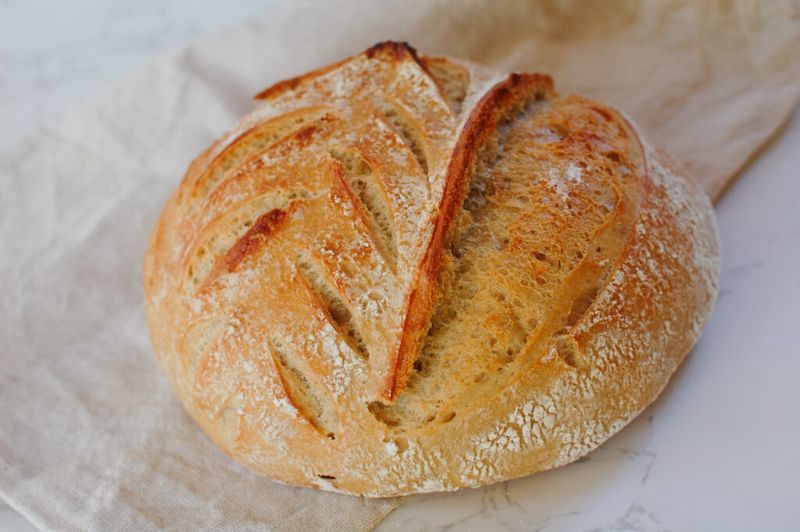
Sourdough bread, with its rich flavor and chewy texture, has been a favorite across cultures. Made from naturally fermented dough, its tangy taste is unique. Rich in probiotics, sourdough supports gut health and is easier to digest compared to regular bread. The fermentation process breaks down gluten, making it a preferable choice for some with gluten sensitivities. Sourdough’s origins trace back to ancient Egypt, showcasing its timeless appeal. Whether toasted with avocado or enjoyed plain, sourdough bread offers a slice of culinary heritage in every bite.
Leave a comment